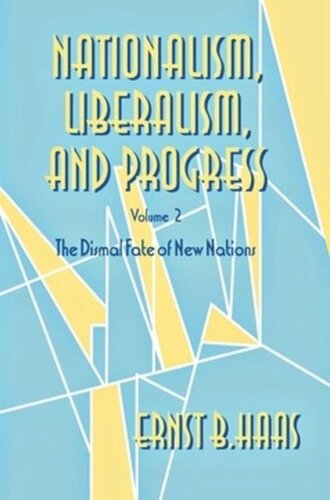

Most ebook files are in PDF format, so you can easily read them using various software such as Foxit Reader or directly on the Google Chrome browser.
Some ebook files are released by publishers in other formats such as .awz, .mobi, .epub, .fb2, etc. You may need to install specific software to read these formats on mobile/PC, such as Calibre.
Please read the tutorial at this link: https://ebookbell.com/faq
We offer FREE conversion to the popular formats you request; however, this may take some time. Therefore, right after payment, please email us, and we will try to provide the service as quickly as possible.
For some exceptional file formats or broken links (if any), please refrain from opening any disputes. Instead, email us first, and we will try to assist within a maximum of 6 hours.
EbookBell Team

4.0
6 reviewsFar from being an inevitably aggressive and destructive force, nationalism is, for Ernst B. Haas, the primary means of bringing coherence to modernizing societies. In the second volume of his magisterial exploration of this topic, Haas emphasizes the benefits of liberal nationalism, which he deems more progressive than other nation-building formulas because it relies on reason to improve citizens' lives. The Dismal Fate of New Nations considers several societies that modernized relatively recently, many of them aroused to nationalism by the imperialism of the "old" nation-states. The book probes the different patterns of development in emerging countries—Iran, Egypt, India, Brazil, Mexico, China, Russia, and Ukraine—for insights into the possibilities and limitations of all nationalisms, especially liberal nationalism. Employing a systematic comparative perspective, Haas organizes the book around the notion of change and its management by political elites in Asia, Eastern Europe, Latin America, and the Middle East. Haas particularly wants to understand how nationalism plays out in the politics of modernization within non-Western cultures, especially those where religions other than Christianity predominate. Where the hold of religion remains formidable, he argues, the mixture of traditional and secular-modernist institutions and beliefs will challenge the victory of liberal nationalism and the very success of nation-state formation.